The past several weeks I’ve been rediscovering some amazing information that I believe will change how you look at one of the most significance passages of prophetic Scripture in the Bible. The information has wide ranging implications that frankly I’m still trying to wrap my mind around.
I hope to be able to put this wonderful information together in a congruent article in a week or two but to give you just a glimpse, below is an image of a 100 word passage of Scripture that most of you are familiar with. These 100 Hebrew words are as they are found in the Hebrew Bible only I’ve arrangement them in a special way as indicated by the larger context in which they are found.
The Challenge:
Can anyone tell me where this exquisite numerical arrangement is found in the Bible?
A Bonus Challenge:
Any Ideas on the larger context of this passage which might support such an arrangement?
Hints:
These five verses are from a chapter of the Bible in which the name of YHWH is used 8 times and no other times in the other chapters of the book. There are 100 words in these five verses and they are arranged by its author in a symbolic pattern of 49+2+49.
The two words of the numerical center of this passage clearly identify it, and the 13th & 14th words of the first three verses and the 13th and 14th words after the numerical center of the passage tell the story. The gray boxes market the start of each verse – – – Hebrew is read from right to left.
Click on Image to Enlarge:

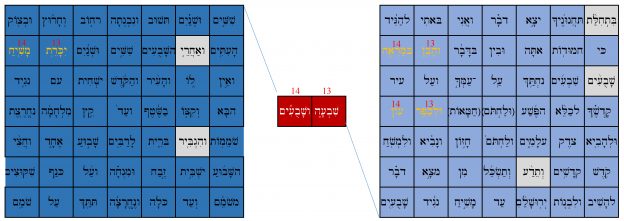
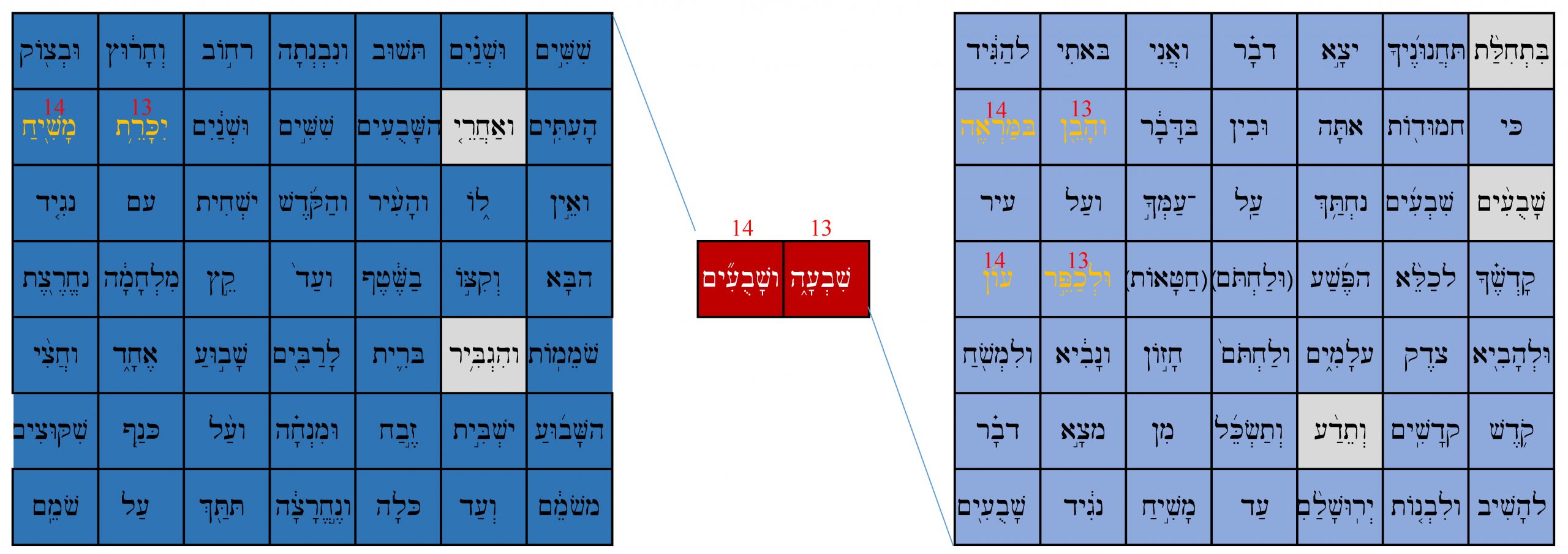
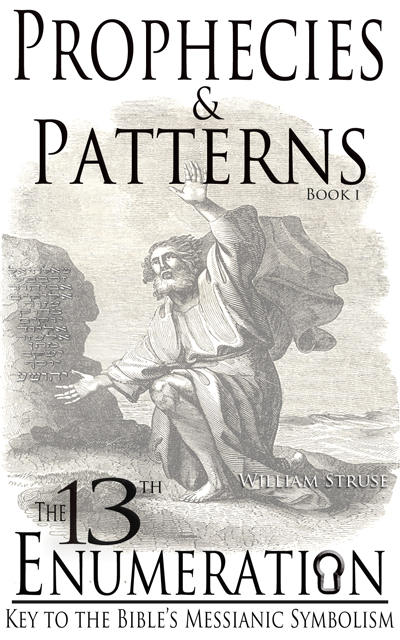
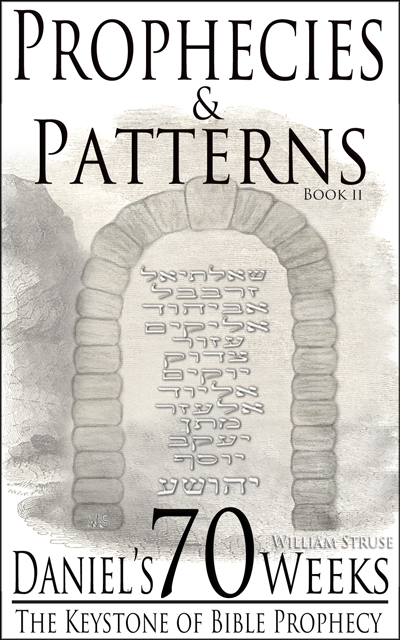
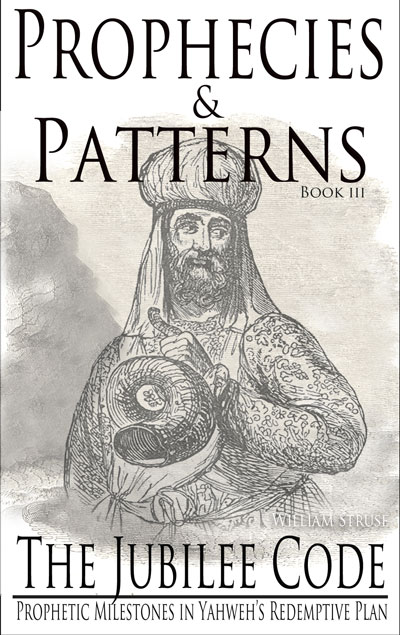
The 13th and 14th words are from Dan 9:25, “seven weeks”. The start of two boxes is Dan 9:23 (on the right) and ends with Dan 9:27 (on the left).
But what are the implications of this?
Good evening David,
You are correct. The passage is from Daniel 9:23-27. The implications are quite important and I’ll be writing about them in my next article. A couple of important points briefly. First of all, the order of those 5 verses shows design meant to emphasis the 70 Sevens and their relationship to the numbers 13 & 14. I’ll go into more detail in my forthcoming article but these numbers are the means by which we can prove that Yeshua (Jesus) was the fulfillment of Daniel. If you are not familiar with my reasoning on this here are a couple of articles that might help: 70 Sevens until the Messiah, Bible Prophecy and the Law of Moses, and the The Messiah Factors. I also explain in more detail about the messianic symbolism of 13 & 14 in my books which you can download for free from by book download page found by click on the images at the end of this article.
But there is more to the story than just those 100 words of Daniel 9:23-27. That 100 word pattern fits within a larger pattern when seen in the context of Daniel 9:1-27. This larger context affirms that those 100 word were intentionally given in the manner they were and further emphasis their importance as part of the whole chapter. If you want a fun mind blowing challenge see if you can find the words that make up the numerical center of Daniel 9:1-27. Once you’ve done that you’ll see that the entire chapter then organizes itself into a specific structure, each part of the structure emphasis the overall symbolism of the passage.
I’ll be explaining it in more detail soon.
Warm regards,
William
Greetings William,
I think you are in Daniel 9. Specifically verses 23-27.
Regards,
Brandon
Good evening Brandon,
You are correct. The 100 word passage is from Daniel 9:23-27 showing its numerical center. The two words are 7 Sevens. So the pattern is 49 words, the two words “7 Sevens”(49), and then 49 words. If that isn’t neat enough the word 7 is the 50th word from the start of the passage and its first letter, the 50th letter of Daniel 9:25. But there is even more than that. I’ll be explaining more soon.
Warm Regards,
William
There is significance to 50 that Daniel had received from the customary Torah readings. The construction of the tabernacle of Exodus 26 defined the sides of the tent roof material with that many loops and clasps. The number of stages of the wanderings to which all that generation had been condemned for forty years was forty-two. Numbers 10:35-36 are marked by two nuns signifying “50” but inverted. The last week of the redemptive cycle was counted out inside the Holy Land, with the marches around Jericho. The elevation of the central element of Daniel 9:23-27 follows a pattern whereby Jeremiah’s 52-chapter “year” is divided into a week that has a “time, times, and half-a-time” in its very middle, counting that 14 (1/2 days of dark then light) brings the dawn of the fourth day of the week at Chapter 25. Here is what Daniel did with Jeremiah’s teaching to “understand by the books” (#s, ciphers, בַּסְּפָרִים): the elevation of the center – just as the pillar of fire or cloud as the breathing Presence of God would require a beginning or halting of one of the 42 stages, the gap between letters kaph (for כִּי, looking backward in time) and lamed (for לָ, looking forward in time) described a vertical axis around which a circle turned, and so generated a symmetrical relationship for Sheshach to signify Babel. The two uses of the “athbash” code at 25:26 and at 51:41 foresaw the “near-term” 70 years and the “far-term” 70 weeks for neatly establishing the same relationship as the desert wandering-stages and the week of Jericho’s doom. Just so, the New Testament shows the drought of Elijah “completed” by seven prayers until the rain. Fifty is ten times the the number of each of the hands laid on the bullock’s head in Exodus 29:10, a verse that follows the use of “filling the hands” as descriptor for ordination.
Thank you for the comments Dave.
Warm regards,
William